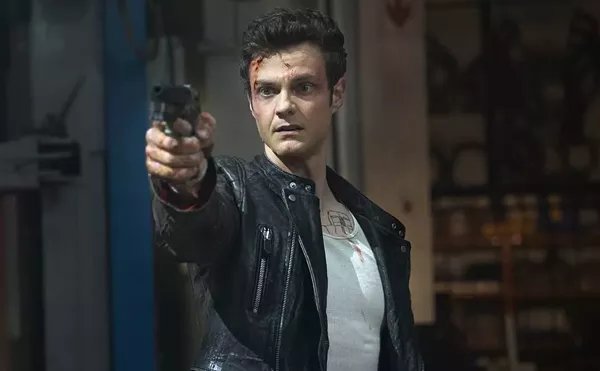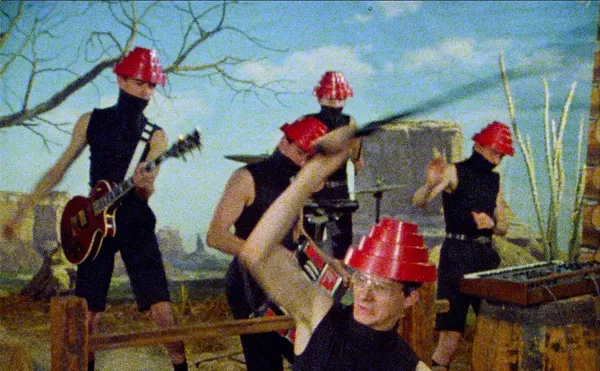Bully
B
The challenge with writing a review of an activist or social issue documentary, particularly when the topic is as important and timely as childhood bullying, is that you have to balance the message and intention of the film against the effectiveness and artistry of its filmmaking. On the first count, Lee Hirsch's Bully is undeniably important, a call to action — or, at least, awareness — of a growing problem in American schools and neighborhoods. On the second count, however, his documentary leaves much to be desired.
Though Bully may go down in cinema history as the movie that best challenged the police-state ethics of the MPAA ratings board (another kind of bully in its own right), its legacy will probably end up being more of a footnote than a game-changing influence.
Following a heartbreaking opening with the grief-stricken parents of a teen who committed suicide due, in part, to being bullied, Hirsch relates his year spent in the homes, hallways and buses of a Junior High School class in Sioux City, Iowa. It's there that we meet 12-year-old Alex, an odd-looking but intelligent outcast whose classmates call "fish-face." Friendless and the frequent target of insults and aggression, you can't help but be moved by the near-daily assaults against his ego and body. His mom worries and struggles to get him to communicate. His dad is ineffectual. Worse, school officials, even when presented with video evidence of school bus violence, remain willfully blind to the problem, offering only hollow bromides. Or as Alex's mom says at one point, "She politicianed us."
Hirsch's embedded camera uncovers both shocking instances of cruelty and frustratingly incompetent responses to the aggression. In one scene, a fight between a bully and his victim is dismissed with unequal justice, as the vice-principal forces the boys to shake hands then chastises the victim for his role in the conflict. As a parent, it's hard not to be outraged by the response. As a child it would be easy to despair that anything will improve.
These are the moments that are best in Hirsch's film, anecdotal fly-on-the-wall moments that illustrate both the problems and the gut-wrenching and appalling inadequacies of our educational institutions to deal with them.
But a better title for Hirsch's doc might have been Bullied. Because, frankly, his film never addresses what makes a bully, never talks to any bullies, and gives woefully little context to the overall issue. When did suicide start to become the response to bullying? What about Internet bullying? How have American schools dealt with the problem in the past? At one point, Alex's mom explains that bus drivers took a more active role in managing the behavior of the kids on board. But that's as far as that question is addressed. In fact, no time at all is given to differing school policies and whether any are effective.
Instead, Hirsch tries to demonstrate the breadth of the problem by taking detours into the stories of four other victims of bullying, two of which ended in the child taking their own life. (One of the boys was 11 years old!) But as heart-shattering as these stories are, we learn next to nothing about either boy or the circumstances of their troubles. The film mostly represents them through their parents' grief.
The two other vignettes, centering on Kelby Johnson, a Oklahoma teen who came out as a lesbian in the heart of the Bible Belt, and 14-year-old Ja'Meya Johnson in Mississippi, who was incarcerated for threatening her tormentors with a handgun, are similarly lacking in substance. Both young women are sympathetic but we're given so little background, so little of their family and community dynamics, that it's hard to find any meaningful lessons in their situations, only empathy.
Unlike many socially aware documentaries, Bully isn't exactly an issue du jour. The problem has existed for as long as people have brutalized others for being different or weaker. An effective call-to-arms treatment would probably have a longer shelf life than many other well-intentioned films (think Darfur Now, The Cove or Sicko). But instead of finding a way to confront the social, political or psychological underpinnings of the issue, the movie mostly offers to children who might see it the message that they are not alone.
And perhaps that's enough — because as a launching point for discussion and activism, Bully is clearly necessary. But as a documentary that instructs or informs, it's a bit of a disappointment. —Jeff Meyers






